How China Influences Hollywood Blockbusters
For Hollywood, China provides the blockbuster combination of a huge movie market and cash-rich equity funds that are eager to invest in films and companies. The Chinese box office is on pace to soon surpass the U.S. as the world’s biggest market, perhaps next year.
Over the past decade, the box office for Chinese cinema-goers has exploded to new heights that have surpassed every other international market. In 2015, gross revenues in the country reached a staggering $7bn, close to double that of 2013. Compare that to the American market, where audiences’ attentions are divided, ‘peak TV’ is at its most saturated and streaming services like Netflix have become legitimate Hollywood power players.
For Hollywood, the Chinese market has, in a relatively short amount of time, become a necessary part of blockbuster release strategies. Savvy moviegoers will have noticed China’s growing influence through some of the past few years’ biggest films: Recognizable Chinese stars have begun popping up in major franchise movies, from X-Men to Star Wars, and Chinese locations have become standard bearers for hot-shot action sequences. Now You See Me 2 set most of its story in Macau, and featured Taiwanese star Jay Chou in a starring role (he also sang the end theme). The film made over $97m in China alone, and now Lionsgate are planning to make a spin-off with a primarily Chinese cast.
The China Movie Channel co-produced Transformers: Age of Extinction also moved part of its setting to the country and earned $222.74 million in ticket sales in less than two weeks. On top of that, the film featured product placement from notable Chinese brands, even in scenes set in rural Texas, which added to the film’s sizeable revenue. Today, Transformers: Age of Extinction is the fourth highest grossing film in China, where it sits alongside three other American produced films in the top 10. One of those films, Duncan Jones’s Warcraft, was almost single-handedly saved from flop status by Chinese audiences.
One studio hoping to continue their Chinese market domination is Disney, whose acquisition of Marvel Studios and Lucasfilm has paid off handsomely in every market, but the success of films like Zootopia (the ninth highest grossing film ever in China) presents a stark contrast from the mid-1990s. In 1996, the country’s governing powers banned filmmaker Martin Scorsese and several production officials from China after they released the film Kundun, on the life of the Dalai Lama. Disney were called out by name for distributing the film, and their works were banned from the country until 1999, after Disney’s pseudo-apology tour just in time for the release of Mulan. Now, the relationship is much stronger, as Disney recently opened a Shanghai resort, which is rumored to have cost $5.5bn.
Like Disney’s penance, American studios are pulling out all the stops to ensure their films not only suit Chinese audiences, but also the official censors of the Chinese government. On top of being co-produced by the state-run CCTV China Movie Channel, Transformers: Age of Extinction, as noted by the Guardian, featured a “benevolent” Chinese government rising up as the dominant power while the US government “manages to be both sinister and useless – typified by the black-clad CIA operatives, one of whom gets beaten up by a Chinese character.” The Great Wall may feature Hollywood’s golden boy Matt Damon in the lead role, but it is far from white savior territory in its depiction of China’s army as the bastion of technological advancement and moral superiority.
Yet Hollywood seems to be making less of an impact as China’s own cinema market grows and audiences flock to blockbusters by home-grown talents like Stephen Chow, whose film The Mermaid is the highest grossing film in China, and made half a billion dollars without even having to come to America (although in its extremely limited US release, it did gross close to $1m over 35 theaters). Chinese audiences aren’t turning away from American films entirely, but films like Kung Fu Yoga, Monster Hunt and Mojin: The Lost Legend fill up the highest grossing list easily in ways the international market has not.
Chinese audiences are also less tolerant of failed pandering. As noted by the Wall Street Journal, they welcome Chinese actors with meaty roles in major projects but steer clear of tokenism, which they refer to as ‘flower vases’. Like any nation, Chinese audiences enjoy seeing themselves and their culture on screen, so a film like The Mermaid, which is unmistakably Chinese in its humor, visuals and tone, appeals far more to audiences than merely putting a familiar face in the background.
Music: Spirit Must Train by Dhruva Aliman
Amazon - https://amzn.to/2B9tGa7
https://music.apple.com/us/artist/dhruva-aliman/363563637
https://dhruvaaliman.bandcamp.com/album/road-of-fortunes
http://www.dhruvaaliman.com/
Spotify - https://open.spotify.com/artist/5XiFCr9iBKE6Cupltgnlet
#chinese
#communism
#control
-
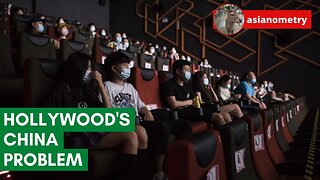 14:40
14:40
Asianometry Channel Archive
1 year agoHollywood's Coming China Problem
14 -
 3:52
3:52
NTD
3 years ago $0.10 earnedChinese Market Drives Hollywood Censorship
88417 -
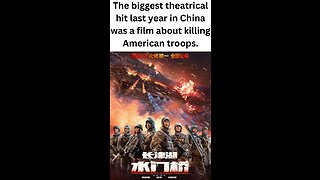 0:44
0:44
The Last Capitalist in Chicago
1 year agoThe biggest theatrical hit last year in China was a film about killing American troops.
11 -
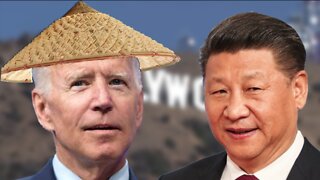 5:58
5:58
Mark Dice
2 years agoHollywood Bows to China
8.12K -
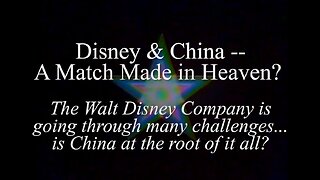 23:41
23:41
Kotonk
11 months agoWhat Is Hollywood's "China Problem?"
3 -
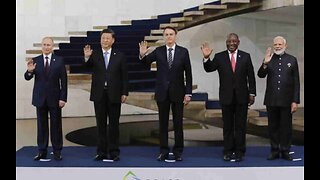 7:20
7:20
Restored Republic
1 year agoNew Study Reveals Which Countries Most Influenced by China
7402 -
 4:00
4:00
Human Events Daily with Jack Posobiec
10 months agoA LOT OF THE COMMUNIST MOVEMENT IN AMERICA STARTED IN HOLLYWOOD
2.61K2 -
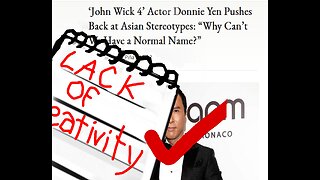 12:06
12:06
Chaotic Ideas At It Best!
1 year agoLack of Creativity in Hollywood: Asian Stereotypes??
111 -
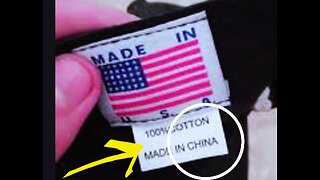 6:30
6:30
BIG BELLY BEAVER: LAND CLEARING AND MULCHING
4 months agoWHY DOES EVERYTHING HAVE TO BE MADE IN CHINA?
8 -
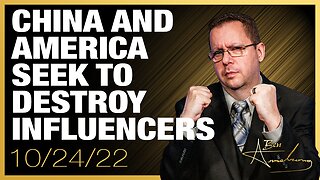 21:09
21:09
The New American
1 year agoChina and America Seek to Destroy Influencers
3.02K3